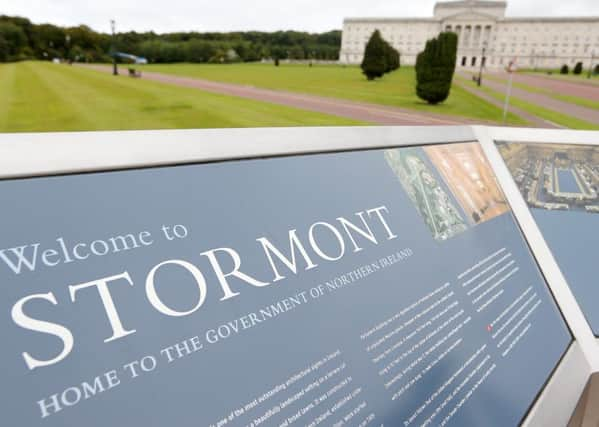Analysis: Deep-seated nationalist fear behind SDLP's late opposition wobble


That fear is at the heart of the SDLP’s initially baffling decision to row in behind Sinn Fein yesterday in signing petitions of concern to (rather ironically) block attempts to reform the petition of concern system.
Sinn Fein’s Caitriona Ruane claimed that although John McCallister’s intentions were noble, “the outworking of his bill could lead to majoritarianism and the potential undermining of the Good Friday Agreement”.
Advertisement
Hide AdAdvertisement
Hide AdRather than legislation, she said that a change to Stormont’s procedural rules - standing orders - could provide for an adequate opposition.
Mr McCallister argues that only legislation will give a Stormont opposition teeth and prevent a future administration simply changing standing orders overnight to deprive their opponents of some of their opposition rights.
There could have been a lively debate within nationalism on that point, with Alex Attwood supporting Mr McCallister and telling MLAs that “putting things in law creates more certainty, avoids doubt and creates more authority”.
Unfortunately for the SDLP, the way in which its petitions of concern emerged at the last minute with no pre-emptive explanation as to why they had apparently changed their position on using the veto mechanism completely overshadowed everything else which the party said.
Advertisement
Hide AdAdvertisement
Hide AdLast night Mr Attwood was keen to stress that the SDLP did support both the principle of an opposition and – unlike Sinn Fein – the great bulk of Mr McCallister’s bill.
Ulster Unionist Danny Kennedy attempted to reassure nationalist MLAs, telling them: “I see no party or individual in the House wanting to go back to majority-style rule when it comes to the structures of the House. Everyone has to be realistic about that and, in some cases, finally accept it.” Despite those words, nationalists and unionists rarely take each other on trust.
Mr McCallister argues that nationalism doesn’t need to rely on those sorts of promises because his bill retains the D’Hondt guarantee for the major unionist and nationalist parties to be in government.
And weighted majority votes would retain a communal nationalist and unionist veto of anything which either side wants to block. What it would do is make it almost impossible for a single party – as now happens with the DUP, and could happen with a larger Sinn Fein bloc – to veto at will.
The SDLP appeared to initially largely accept that – but for whatever reason its stance has shifted in recent days.